#Laurie Flanigan Hegge
Text
DG National Report: Minneapolis/St. Paul
by Laurie Flanigan Hegge
@dramatistsguild @LaurieFlanigan
Ever since Joseph Haj took the reins of the Guthrie Theater in 2015, I’ve been eager to hear his thoughts on creating space for contemporary playwrights at Minneapolis’ flagship regional theater and what that could mean in terms of diversity and gender parity among the Guthrie’s artists.
Haj and I spoke frankly about the challenges of inclusive programming at an institution that is, and will continue to be, dedicated to the classical canon, which was by and large authored by white men. One of Haj’s solutions to that conundrum is to view classic texts through a contemporary lens, as evidenced by the Guthrie’s recently announced 2017-2018 Season, which will include Guild Council member Kia Corthron’s newly commissioned adaptation of Henrik Ibsen’s An Enemy of the People. Enemy chronicles the trials of a persecuted whistleblower and is a play that thematically resonates in today’s political climate. Corthron’s strong, vibrant voice will no doubt underscore that classic story’s relevancy. Corthron is one of four Dramatists Guild members represented in the Guthrie’s 2017-2018 Season: Paula Vogel’s Indecent runs in February, Macalester College grad Danai Gurira’s Familiar will play next March, and Matthew Lopez’s The Legend of Georgia McBride will be produced next summer.
In discussing issues of gender parity and inclusion, Haj’s mission is clear: he’s working toward cultural and gender diversity across the organization, from creative teams to casts, from administrators to the Guthrie’s board of directors.
“Systemic and institutional biases need systemic and institutional solutions,” Haj says.
And so his first conversation with all incoming Guthrie directors starts with a hiring mandate: there is no such thing as a homogeneous creative team at the Guthrie. For Haj, that doesn’t mean checking boxes. Rather, he firmly believes that the work on stage exponentially improves when he brings artists together from rich and varied backgrounds.
When it comes to supporting playwrights, Haj was candid about how the economic downturn of 2008 meant the shuttering of the Guthrie’s new play initiative. Currently, he is interested in exploring how the Guthrie might operate as a generator of new work and how to be “additive not replicative” in that arena given the success of the Guthrie’s Minneapolis neighbor, the Playwrights’ Center. While that answer is forthcoming, the Guthrie has remained committed to providing institutional support to local theater companies by presenting their theatrical innovations in the Guthrie’s Dowling Studio.
“Over the past three seasons, the Guthrie has presented three of our company’s (7th House Theater) productions, all of them new musicals,” explains Minneapolis-based playwright/composer and Guild member David Darrow. “As a writer, seeing my work in front of an audience has been an invaluable experience, but there are also the nuts-and-bolts resources that the Guthrie provides like rehearsal space, technical assistance, marketing and community outreach that have helped 7th House grow into a small organization with a large and loyal audience. And I personally would not be where I am as a writer and composer if it wasn’t for the Guthrie and the faith that former artistic director Joe Dowling, and now Joseph Haj, have placed in us.”
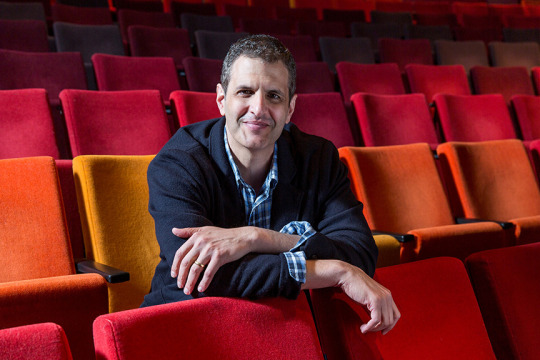
Joseph Haj
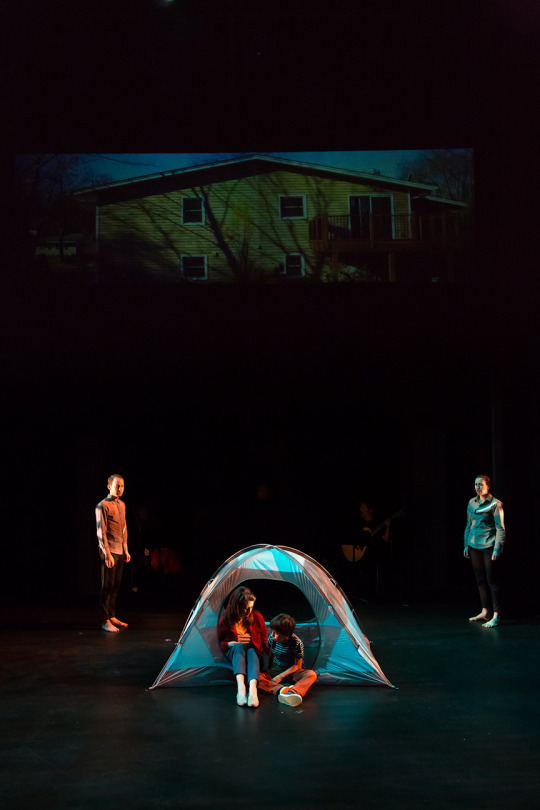
Grant Sorenson, Laura Trujillo, Alejandro Vega, and Cat Brindisi; photo credit Amy Anderson
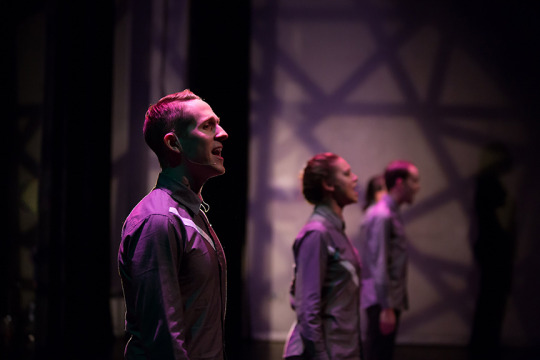
Derek Prestly, Grant Sorenson, and Kendall Anne Thompson; photo credit Amy Anderson
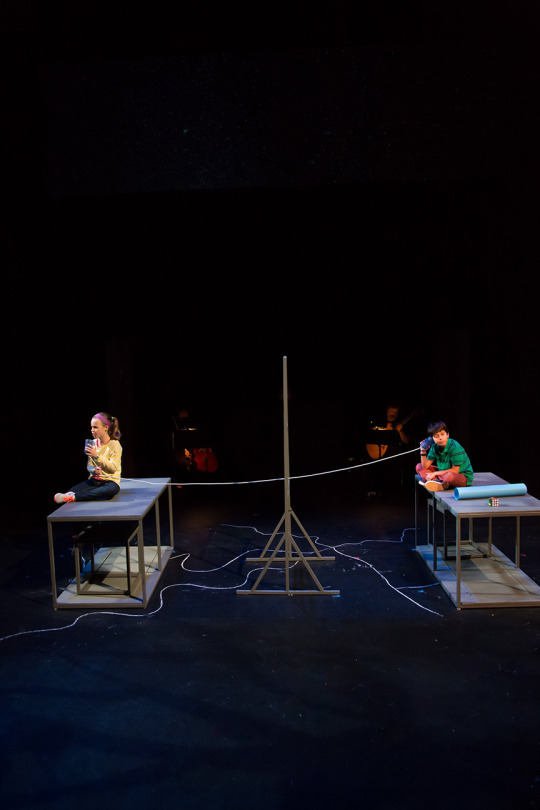
Mary Bair and Alejandro Vega; photo credit Amy Anderson
1 note
·
View note
Text
DG National Report: Minneapolis/St. Paul by Laurie Flanigan Hegge
@dramatistsguild @LaurieFlanigan
When Harrison David Rivers came to the Twin Cities from NYC in 2014 on a Jerome / Many Voices Fellowship, he had no way of knowing that he was here to stay. Three years and a new husband later, Harrison has embraced his life as a Twin Cities playwright, and the Twin Cities have loved him right back. Three separate Twin Cities theaters will present his work in 2018. First up: The premiere of A Crack in the Sky, a collaboration with Somali writer Ahmed Ismail Yusuf (directed by Faye Price, History Theatre, St. Paul, Feb. 10 through March 4), a piece History Theatre Artistic Director Ron Peluso calls “a beautiful play about Ahmed's journey from Somalia to the USA…a story of love, literature, and perseverance.” Next up: Five Points, a new musical with Book by Harrison David Rivers, Music by Ethan Pakchar & Douglas Lyons, and Lyrics by Douglas Lyons (directed by Peter Rothstein, Theatre Latté Da, Minneapolis, April 4-May 6, 2018). This world premiere chronicles the journey of two different men, a former Irish jig champion and a young African American step dancer whose lives are thrown together during the Draft Riots of 1863 in lower Manhattan, New York. Also upcoming in April: This Bitter Earth, a two-character work commissioned by the New Conservatory Theater Center in San Francisco. Penumbra Theatre in St. Paul stages its second production April 26-May 20 under the direction of Talvin Wilks. (The premiere runs in San Fransisco September 22-October 22, 2017, Ed Decker, dir.)
I reached Harrison by phone in NYC where he was in pre-production mode for another world premiere this fall: Only You Can Prevent Wildfires, at Ricochet Collective. Written by Rivers, conceived and directed by Sherri Eden Barber, this commission (Ricochet’s first) explores the true story of Terry Lynn Barton, a former U.S. Forest Service employee who started the largest wildfire in Colorado history (playing October 7-28 at Theatro Círculo). Harrison’s dizzying schedule of upcoming work naturally led to a conversation about how living and working in Saint Paul has made his life more manageable, even when faced with the reality of long-distance collaboration. He explained that while he may have missed out on collaborative opportunities because of geography, a life in Saint Paul has afforded him the opportunity to breathe and focus on his work in a space that is less frantic than his former life in New York City. He has also found here in Minnesota a support system that includes his new husband, Christopher, and the Playwrights’ Center, where he was granted a McKnight Fellowship in 2015, has joined the board, chairs the artistic committee, and is now in his second year as a core member.
Like so many playwrights in our community, Harrison came to the Twin Cities through the PWC and stayed because it’s a great place to be if you’re a playwright. In talking about the development opportunities he’s been afforded by Twin Cities theatre companies (such as Raw Stages at the History Theatre and the NEXT series at Latté Da), he mentioned that This Bitter Earth also had its developmental workshops here at the PWC, and that Twin Cities actors H. Adam Harris and Michael Hanna are following the production to San Francisco for the world premiere.
I loved hearing how Harrison might have passed on the initial opportunity to come for his Jerome in 2014 if it weren’t for Jeremy Cohen’s open-hearted invitation: “I know you have a very full life in New York, but we want you.” In Harrison’s words, “The warmth and commitment I felt from the Playwrights’ Center and their willingness to open their arms to playwrights from around the country showed me that it was the right decision to make, and of course I’m thrilled that I made that decision.” And he doesn’t feel like NYC is really so far off. It’s only a two hour plane ride away, and as he says, “The work I bring into the rehearsal room in New York is stronger because of the life I get to lead in the Twin Cities. Without the pressure and stress, I know I’m getting a better draft.” With his intense schedule of back-to-back world premieres, it’s hard to imagine that he’s completely devoid of pressure or stress, but I’m so glad the Twin Cities are treating him so well.
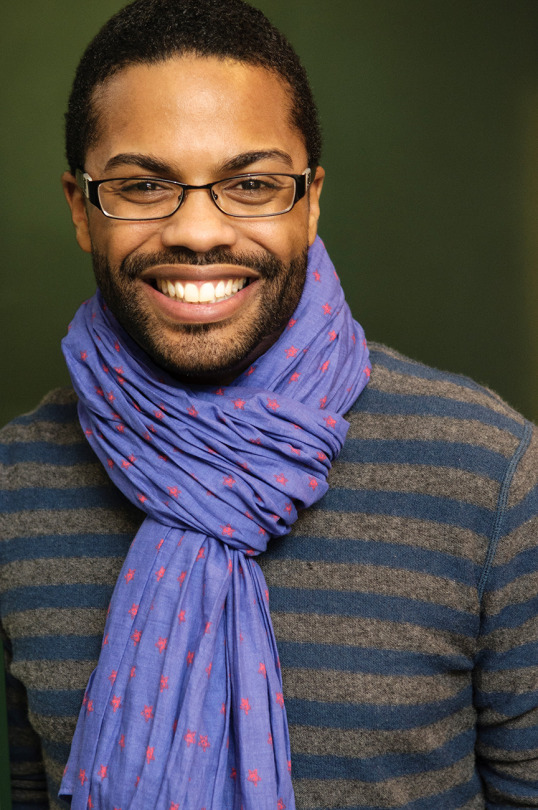
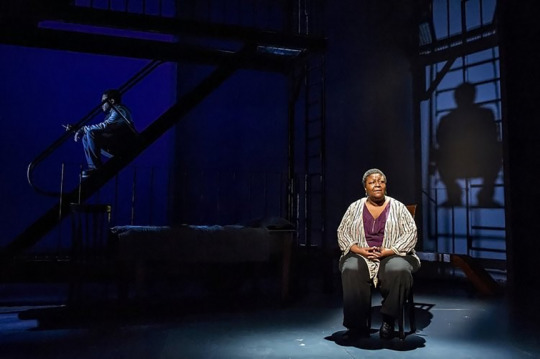
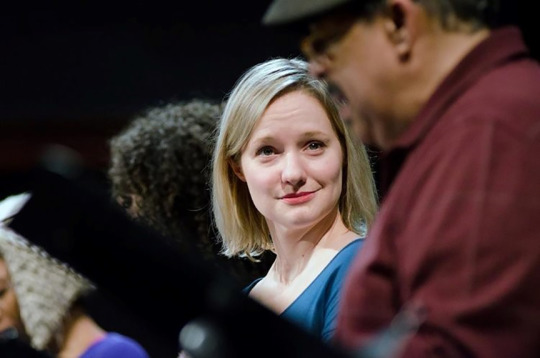
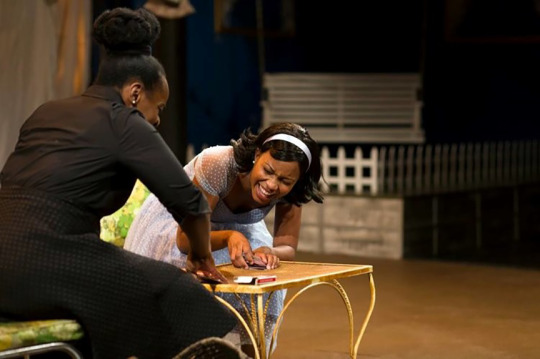
0 notes
Text
DG Regional Report: Minneapolis/St. Paul by Laurie Flanigan Hegge
@dramatistsguild
This past June, Barbara Brooks, Producing Artistic Director of the Minnesota Jewish Theatre Company (MJT), played host to the Association for Jewish Theatre’s annual conference in the Twin Cities. MJT is an award-winning theatre company in Saint Paul, MN that strives to “ignite the hearts and minds of people in all cultural backgrounds” with work rooted in Jewish content, “exploring differences, illuminating commonalities, and fostering greater understanding among all people.” The 2013 AJT Conference, “Imagining Jewish Theatre in the 21st Century,” featured a keynote discussion with DG Council member Emily Mann, led by renowned Holocaust theatre scholar Robert Skloot from the Theater Department and Center of Jewish Studies at the University of Wisconsin, and a special event honoring Theodore Bikel, who charmed conference attendees with his engaging presence. Mr. Bikel was given an award for his contributions to Jewish Culture; he assured those present the award would be placed in a special area of his home, “plaq-astan.”
The Twin Cities community was well represented throughout the conference. A session titled “What If?” featured four women who have brought about change in the Twin Cities – Michelle Hensley from Ten Thousand Things, a Minneapolis company that brings “lively, intelligent theatre to people who have little or no access to the arts,” (such as homeless shelters and correctional facilities), Adrienne Diercks from Project Success, an organization that “uses the arts as a springboard for inspiration, confidence, creativity and discussion in the classroom and at home,” Laura Zabel from Springboard for the Arts, a nationally recognized not-for-profit arts service organization in St. Paul, and Barbara Brooks of MJT. A conversation on culturally specific theatre featured Lew Bellamy, Founder and Artistic Director of Penumbra Theatre, who described his work as “art with intent,” and Randy Reyes, incoming Artistic Director for Mu Performing Arts, who struck a chord when he stated that Mu strives to create work that allows the audience “to see us as three-dimensional human beings, not as the inscrutable Asian character who serves as the backdrop for someone else’s catharsis.”
Other sessions featured conversations on Jewish Theatre Models, building relationships with audiences, and funding streams – a revelatory session for non-Minnesotans present, who were shocked and awed by State Senator Richard Cohen, author of Minnesota’s Clean Water, Land and Legacy Amendment – groundbreaking legislation which created the Arts and Cultural Heritage Fund, a new (as of 2008) funding stream for the arts guaranteed by the Minnesota Constitution until 2034. Peter Brosious of the Children’s Theatre Company led a panel on new theatre for young people with Director of New Play Development Elissa Adams and playwrights Rosanna Staffa and (DG member) Jenna Zark – an interesting discussion which delved into thematic material for young people, and how children crave truth on stage, for as Rosanna pointed out, “in truth, there is hope.” A solo performers’ showcase included a performance from DG member Laura Zam (Married Sex) and the Playwrights’ Center hosted several performances, including works by DG members Phil Johnson and my colleague and fellow DG rep for Ohio, Faye Sholiton, who is the founder of Interplay Jewish Theatre, a company that produces staged readings of Jewish themed works and whose company name was inspired by Emily Mann’s earlier description of good theatre as “the interplay of head and heart.”
And this was just the tip of the iceberg for this three-and-a half-day conference. In the words of Association for Jewish Theatre President David Chack (shpieltheatre.com), “The wonderful thing about the AJT Conference is that it brought theatremakers doing Jewish theatre from all over the world to Minneapolis/St Paul, one of the great theatre communities today, and it enriched both.” When I spoke with Faye Sholiton at the DG conference this past August, she was still glowing from the June AJT conference. “I’m not the only one who left the AJT conference with a renewed sense of purpose,” says Sholiton. “It was clear that we are all meant to dream bigger and think more creatively. As one speaker reminded us, Martin Luther King did not say ‘I have a strategic plan.’”
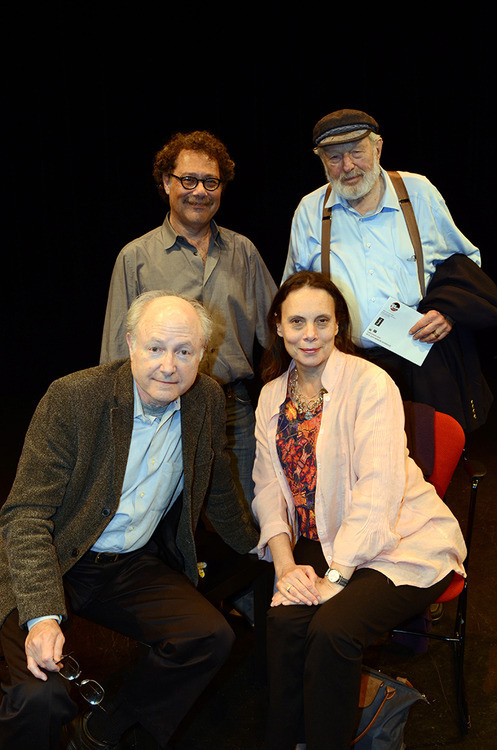
Above: David Chack, Theodore Bikel, Robert Skloot & Emily Mann. Photo by Elaine Seigel.
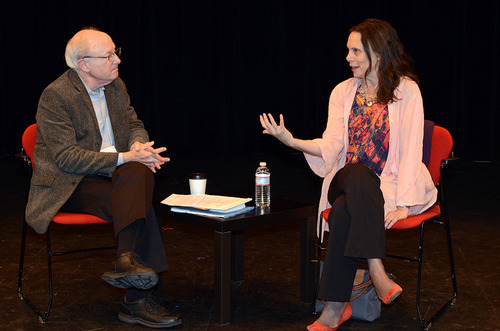
Above: Robert Skloot & Emily Mann. Photo by Elaine Seigel.
#the dramatist#Dramatists Guild of America#Laurie Flanigan Hegge#Minneapolis#St. Paul#theatre#Theater#David Chack#Theodore Bikel#Robert Skloot#Emily Mann
1 note
·
View note